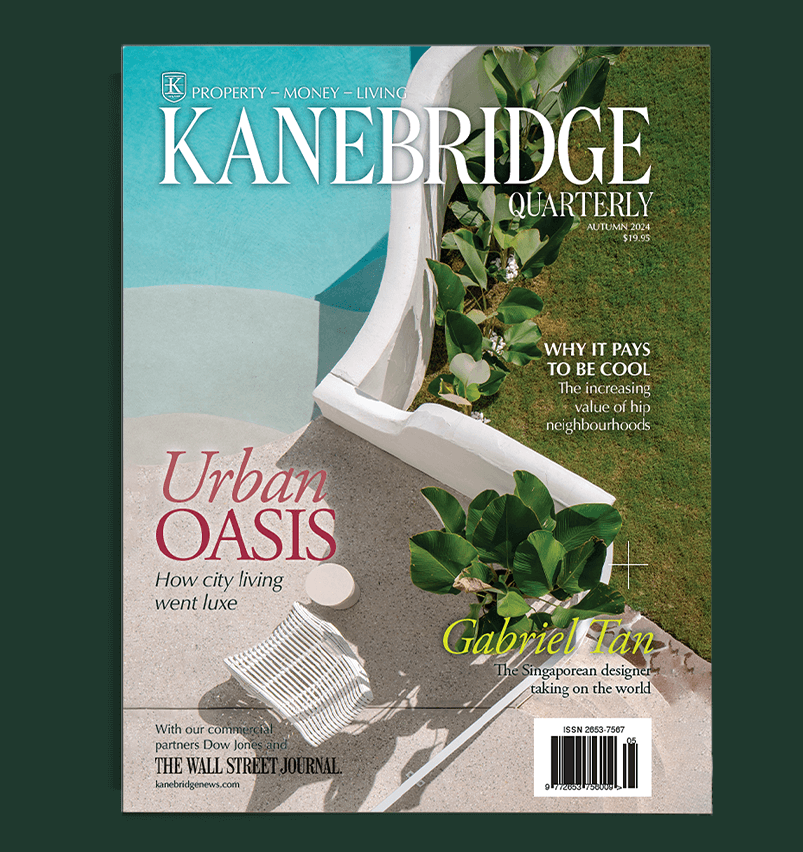If Your Co-Workers Are ‘Quiet Quitting,’ Here’s What That Means
Some Gen Z professionals are saying no to hustle culture; ‘I’m not going to go extra.
Not taking your job too seriously has a new name: quiet quitting.
The phrase is generating millions of views on TikTok as some young professionals reject the idea of going above and beyond in their careers, labelling their lesser enthusiasm a form of “quitting.”It isn’t about getting off the company payroll, these employees say. In fact, the idea is to stay on it—but focus your time on the things you do outside of the office.
The videos range from sincere ruminations on work-life balance to snarky jokes. Some set firm boundaries against overtime in favour of family. Others advocate coasting from 9-to-5, doing just enough to get by. Many want to untether their careers from their identities.
Of course, every generation enters the workforce and quickly realizes that having a job isn’t all fun and games. Navigating contemptible bosses and the petty indignities that have always been inflicted on the ranks of working stiffs has never been easy. And many people who say, when they’re young, that they don’t care about climbing the corporate ladder end up changing their minds.
The difference now is that this group has TikTok and hashtags to emote. And these 20-somethings joined the working world during the Covid-19 pandemic, with all of its dislocating effects, including blurred boundaries between work and life. Many workers say they feel they have power to push back in the current strong labour market. Recent data from Gallup shows employee engagement is declining.
Clayton Farris, 41 years old, said that when he recently heard about the new term circulating on social media he realized he’d already been doing it by refusing to let work worries rule over him the way they used to.
“The most interesting part about it is nothing’s changed,” he said in his TikTok video. “I still work just as hard. I still get just as much accomplished. I just don’t stress and internally rip myself to shreds.”
Across generations, U.S. employee engagement is falling, according to survey data from Gallup, but Gen Z and younger millennials, born in 1989 and after, reported the lowest engagement of all during the first quarter at 31%.
Jim Harter, chief scientist for Gallup’s workplace and well-being research, said workers’ descriptions of “quiet quitting” align with a large group of survey respondents that he classifies as “not engaged”—those who will show up to work and do the minimum required but not much else. More than half of workers surveyed by Gallup who were born after 1989—54%—fall into this category.
One factor Gallup uses to measure engagement is whether people feel their work has purpose. Younger employees report that they don’t feel that way, the data show. These are the people who are more likely to work passively and look out for themselves over their employers, Dr. Harter said.
Paige West, 24, said she stopped overextending herself at a former position as a transportation analyst in Washington, D.C., less than a year into the job. Work stress had gotten so intense that, she said, her hair was falling out and she couldn’t sleep. While looking for a new role, she no longer worked beyond 40 hours each week, didn’t sign up for extra training and stopped trying to socialize withcolleagues.
“I took a step back and said, ‘I’m just going to work the hours I’m supposed to work, that I’m really getting paid to work,’” she said. “Besides that, I’m not going to go extra.”
Ms. West said that she found herself more engaged during meetings once she stopped trying so hard, and she received more positive feedback. She left the job last year and is now a full-time freelance virtual assistant making about 75% of her previous salary. She adjusted by moving back to her home state of Florida.
Zaid Khan, a 24-year-old engineer in New York, posted a quiet quitting video that has racked up three million views in two weeks. In his viral TikTok, Mr. Khan explained the concept this way: “You’re quitting the idea of going above and beyond.”
“You’re no longer subscribing to the hustle-culture mentality that work has to be your life,” he said.
Mr. Khan says he and many of his peers reject the idea that productivity trumps all; they don’t see the payoff.
Some online commenters pledged to relax on social media when they had downtime at work. Others say they will follow their job descriptions to the letter, instead of asking for additional assignments.
A new crop of quiet-quitting videos is starting to pop up, denouncing the move as a cop-out, not a cure-all for burnout or discontentment at work.
People who coast have been fixtures of the office for decades, but many of today’s less-invested employees have been able to skate by thanks to remote work, said Elise Freedman, a senior client partner at consulting firm Korn Ferry.
If the economy sours, Ms. Freedman said, less-engaged workers may be more at risk of layoffs. “It’s perfectly appropriate that we expect our employees to give their all,” she said.
Josh Bittinger, a 32-year-old market-research director at a management-consulting company, said people who stumble on the phrase “quiet quitting” may assume it encourages people to be lazy, when it actually reminds them to not work to the point of burnout.
After years of saying “yes” to everything, in hopes of standing out, Mr. Bittinger said he’s learned to say no more, reserves evenings for himself and avoids checking email on vacation.
“I get my job done, my projects done. I’m performing well and I get good feedback,” he said. “And I’m able to still take time to just step away from everything.”
Reprinted by permission of The Wall Street Journal, Copyright 2021 Dow Jones & Company. Inc. All Rights Reserved Worldwide. Original date of publication: August 12, 2022.
 Copyright 2020, Dow Jones & Company, Inc. All Rights Reserved Worldwide. LEARN MORE
Copyright 2020, Dow Jones & Company, Inc. All Rights Reserved Worldwide. LEARN MORE
This stylish family home combines a classic palette and finishes with a flexible floorplan
Just 55 minutes from Sydney, make this your creative getaway located in the majestic Hawkesbury region.
We’re thinking about productivity at work all wrong, Cal Newport says. But how do we tell the boss that?
You’re oh so busy. You’re on Slack and email and back-to-back Zoom calls , sometimes all at once . Are you actually getting real work done?
Cal Newport doesn’t think so.
“It’s like, wait a second, none of this mattered,” says the Georgetown University computer science professor and crusader for focus in a distracted age.
Newport, 41, says we can accomplish more by shedding the overload. He calls his solution “slow productivity”—and has a book by the same name —a way for high achievers to say yes to fewer things, do them better and even slack off in strategic doses. Top-notch quality is the goal, and frenetic activity the enemy.
This, he told me, is the thing that can save our jobs from AI and layoffs, and even make shareholders happy.
I had questions. Can we really be less is more at work, or have we grown addicted to constantly crossing endless tasks off our to-do lists? What will our bosses think?
After all, so many of us yearn for a burnout cure-all that will preserve our high-achiever status, and this isn’t the first you-can-have-it-all proposition we’ve heard. Champions of the four-day workweek promise we can ditch an entire workday just by working smarter. Remote-work die-hards swear it’s a win for employers and employees. Few dreams are more seductive than bidding goodbye to hustle culture, while still reaping the benefits of said hustle.
Newport acknowledges that saying no to preserve our productivity can be a delicate act. He knows that entrepreneurs have more flexibility, but says those of us who answer to managers can carve this out too. We might even find we have more power and value to our employers.
“You should take that value out for a little bit of a spin,” he suggests. He offers some pointers.
Less is more
The way we work now is a “serious economic drag,” Newport says. Knowledge workers have devolved into a form of productivity that’s more about the vibes—stressed!—than actually making money for the company. Data from Microsoft finds that lots of us spend the equivalent of two workdays a week on meetings and email alone.
One mistake we make, Newport says, is taking on too many projects, then getting bogged down in the administrative overload—talking about the work, coordinating with others—that each requires. Work becomes a string of planning meetings, waiting on someone from another department to give us a go-ahead.
Newport recommends giving priority to a couple projects, then bumping the others to a waiting list in order of importance. Make that list public, say, in a Google doc you share with bosses and colleagues.
“When workloads are obfuscated behind black boxes, it’s just people throwing stuff at each other, it’s very dangerous to say no,” Newport says.
If someone comes to you with more work, have them consider where it should go on your list, Newport says.
When you do say yes, double the estimated timelines you set to complete a project. That’s how long it’ll take to do it well, he says. And try what he calls a “one for you, one for me strategy.” Every time you book an hour-long meeting, block an hour for independent work on your calendar.
Be the one to trust
It’s a foreign and bracing approach for those of us who reflexively say yes to work requests. Newport’s philosophy requires transparency and confidence. Instead of “let me see how fast I can turn that around!”, try, “This request will take six hours. I’ll have that time in three weeks.”
This could be heresy at some companies. The trick is in the delivery, he says. Never make it seem like work tasks are a burden you shouldn’t have to face. Instead, stress that you’re trying to be as effective as you can for the team and the company. Be positive, and deliver on the timelines you promise. You’ll be seen as someone who’s organised and on top of your game.
We think bosses want someone who’s always accessible—fast to respond, fast to jump into action, Newport says. But what bosses really want is to know that a project they hand you will get done.
Bite-size shirking
Quiet quitting permanently is a bad idea, Newport says, but a little bit is good.
Don’t feel guilty, he adds. You’re working under a new, better system. We weren’t meant to work all out , every day, without seasonal shifts and pauses.
Pick a time—say, the month of July—to slow down. Don’t volunteer for extra work. Don’t offer Mondays as a possibility for meetings. Take on an easier project for cover.
He also recommends taking yourself out to a monthly movie during the workday. Say it’s a personal appointment, and enjoy the sense of control and creativity it brings.
You don’t have to nail a manifesto to the wall, he adds, or try to change the whole company culture. Instead, quietly carve out change for yourself.
Coming into your power
The catch: You have to be really good at the part of your job that matters. And you have to get big stuff done. Remember, this is about being a happier high performer, not slacking.
“There’s no hiding,” Newport says.
I suspect this terrifies a lot of people. They’ve gotten good at being always on and typing up yet another meeting agenda. Tackling a major project or goal is often harder, and comes without a guarantee that you’re going to nail it.
Scary or not, real work is becoming imperative. AI is coming for the rote parts of our jobs. Leaders are sussing out the “nonsense” projects and roles in their ranks as they cut jobs, Newport says. No boss wants to be left with a team of people who are aces at responding to emails.
Mastering a valuable skill puts you in control. Newport writes of people who leave corporate America behind and move where they want , working remotely as contractors, charging wild fees for fewer hours of work. The more you shed the work that doesn’t matter, and spend that time getting better at the stuff that does, the more leeway you’ll get.
“The marketplace doesn’t care about your personal interest in slowing down,” Newport writes. “If you want more control over your schedule, you need something to offer in return.”
Figure that puzzle out, and you might just be able to have it all—high achievement, and your sanity.
Just 55 minutes from Sydney, make this your creative getaway located in the majestic Hawkesbury region.
This stylish family home combines a classic palette and finishes with a flexible floorplan






















